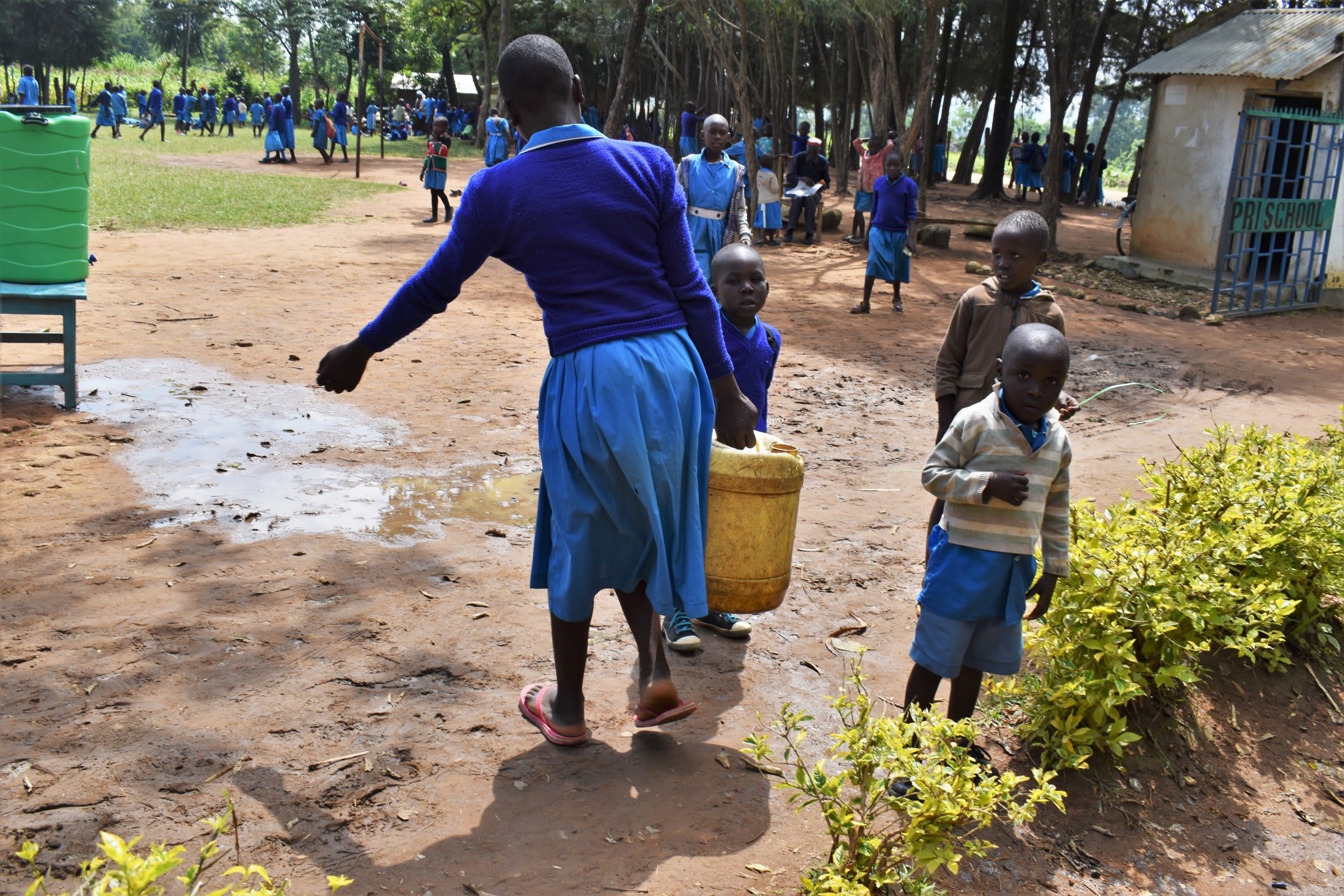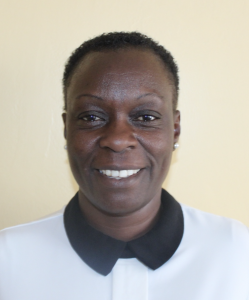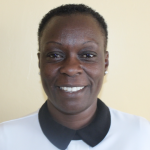Ingavira Primary School's hand-dug well only supplies the school's 1,248 students with water during the wet season. For half of the year, students must bring their own water from home—often from unsafe sources—and go out to fetch it during the school day.

Even when the school's well does have water, it is not safe to use for drinking or cooking, only for cleaning. The school used to pay for water from a closeby standpipe, but they no longer have the funds to do so and it was disconnected. The burden of finding water falls on the students. They must wake up very early in the morning to go and look for water to bring with them to school. However, the water they bring is never enough.
"The situation of water in this school has really affected us. We waste a lot of time looking for water instead of learning. This has greatly contributed to our poor performance in academics," said Boniface, a 14-year-old student.
"Pupils consume a lot of time going to look for water rather than being in class," said Margaret Nambivi, Deputy Head Teacher.
Because students fetch water from wherever they can find it, waterborne diseases such as diarrhea, typhoid, and stomachache are common. Not only has this led to a high rate of absenteeism for students, but it affects students' long-term health. Most pupils' families cannot afford proper medication due to the high levels of poverty in the community.
Fetching water during the day is not only perilous to the students' health, but it can also be dangerous. The school is in a very busy area, as it is right across the street from the Western Kenya Sugarcane Factory. Motorists, trucks, tractors, and cab drivers zoom past the school each day, not always being mindful of children carrying heavy jerrycans back and forth.
"The school is just at the road where the tractors and motorcycles pass," Margaret Nambivi explained. This has caused accidents and contributes to high absenteeism since students hate crossing the busy road.
What We Can Do:
New Well
We conducted a hydrogeological survey at this school, and the results indicated the water table beneath it is an ideal candidate for a borehole well. Due to a borehole well's unique ability to tap into a safe, year-round water column, it will be poised to serve all of the water needs for this school's large population, even through the dry months.
The school will help collect the needed construction materials such as sand, rocks, and water for mixing cement. They will also provide housing and meals for the work team, in addition to providing local laborers. We will complement their materials by providing an expert team of artisans and drilling professionals, tools, hardware, and the hand-pump. Once finished, the school’s students and staff will use water from the well and staff for drinking, handwashing, cooking, cleaning, and much more.
The school and we strongly believe that all of these components will work together to improve standards at this school, which will help lead to better student academic performance and will help unlock the opportunity for these students to live better healthier lives.
Handwashing Stations
There is currently nowhere for students to wash their hands after using the latrines or eating lunch, let alone the water.
The student health club will oversee the two new handwashing stations we will provide and ensure they are kept clean and in working condition. The club leaders will fill the handwashing stations with water daily and make sure they are always supplied with a cleaning agent such as soap or ash.
VIP Latrines
Two triple-door latrine blocks will be constructed with local materials that the school will help gather. Three doors will serve the girls, and three doors will serve the boys. These new latrines will have cement floors that are designed to be easy to use and clean. And with a rain tank right on school property, there should be enough water to keep them clean.
Training on Health, Hygiene, COVID-19, and More
We will hold a one-day intensive training session with students, teachers, and parents. This training will cover a wide range of topics, including COVID-19 symptoms, transmission routes, prevention; personal and environmental hygiene; and the operation and maintenance of the rain tank, latrines, and handwashing stations. There will be a special emphasis on handwashing.
Our team of facilitators will use various methods to train, including participatory hygiene and sanitation transformation and asset-based community development. We will initiate a student health club, which will prepare students to lead other pupils into healthy habits at school and home. We will also lead lectures and group discussions and provide illustrative handouts to teach health topics and promote good hygiene practices within the school, including handwashing and water treatment. We will then conduct a series of follow-up training before transitioning to our regularly scheduled support visits throughout the year.



 Rehabilitation Project
Rehabilitation Project





































